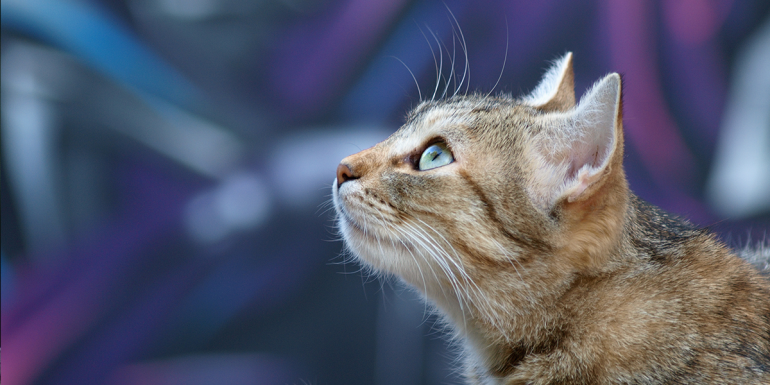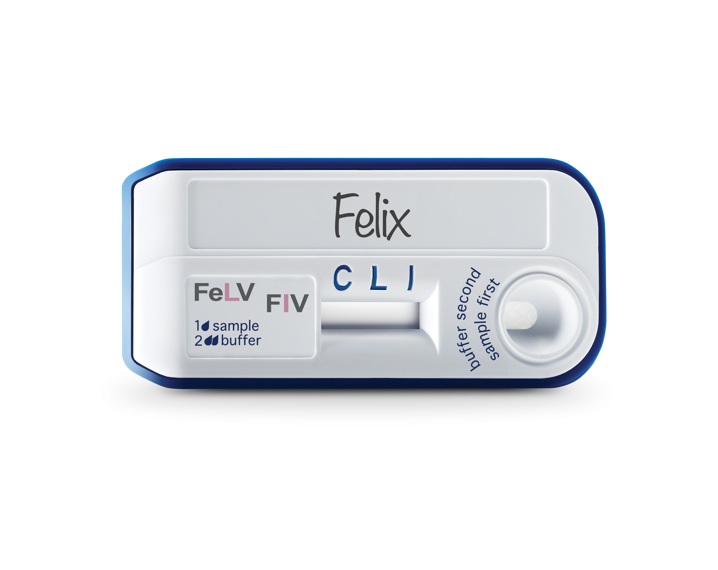Feline Immunodeficiency Virus (FIV)

Feline Immunodeficiency Virus (FIV) is a serious and often misunderstood health concern affecting cats. Similar to the human immunodeficiency virus (HIV), FIV weakens a cat's immune system, making them susceptible to various infections and diseases. In this article, we will delve into the causes, symptoms, prevention, and management of FIV, shedding light on the importance of awareness and responsible pet care.
Feline Immunodeficiency Virus (FIV)
The Feline Immunodeficiency Virus (FIV) is closely related to the Human Immunodeficiency Virus (HIV), which is the cause of AIDS in humans, as its name implies. Both diseases have no known treatment, and the virus gradually destroys the white blood cells that the body needs to defend against infections. It should be noted that the two viruses are limited to normal host species; humans cannot contract FIV from cats or vice versa.
How does the virus spread?
FIV is spread from cat to cat through bites and is present in the saliva and other bodily fluids of cats. It usually affects stray cats and is more common in unneutered female tomcats than neutered male cats. Compared to male cats, female cats are typically less prone to fight. But all it takes is a bite to spread illness, and once it's there, a cat can never fully recover from the virus. Additionally, the virus can be passed down through generations; approximately one in every four kittens delivered to an infected female are sick. A mother can infect her unborn child by eating the placenta during pregnancy, licking her young, or biting the birth cord after the kittens are born. There is no proof that FIV is sexually transmitted, in contrast to HIV.
FIV is a lentivirus, belonging to the same family as HIV. It attacks a cat's immune system, compromising its ability to fight off infections. The virus is primarily transmitted through bite wounds, often occurring during fights between outdoor, unneutered male cats. Unlike some other diseases, FIV cannot be transmitted through casual contact like grooming, shared food bowls, or litter boxes.
What happens to my cat if it is infected?
Your cat might exhibit symptoms of illness in the early days following the infection, such as a little fever, but it's doubtful that you would become aware of these little deviations. More severe symptoms may appear in a cat that is already infected with the Feline Leukemia Virus (FeLV). They might, however, recover quickly and remain in excellent condition for several months or even years after that. They will eventually become more prone to illness, with symptoms that varied greatly from animal to animal and include fever, weight loss, dull coat, swollen glands, and lethargy. Cats that are affected frequently experience diarrhea, anemia, discharge from the eyes, and oral inflammation. FIV-infected cats appear to be more susceptible to some cancers, and in a small percentage of cases, neurological system damage results in behavioral abnormalities, convulsions, dementia, etc.
Symptoms of FIV
FIV can remain asymptomatic in cats for several years, making it a silent threat. When symptoms do appear, they can vary widely and include:
-
Recurrent Infections: Cats with FIV are prone to frequent infections, such as respiratory or dental infections, due to their weakened immune system.
-
Weight Loss: Unexplained weight loss is a common symptom of FIV.
-
Lethargy: Infected cats often lack energy and enthusiasm for activities.
-
Poor Coat Condition: FIV-positive cats may have a dull, unkempt coat due to reduced grooming.
-
Swollen Lymph Nodes: Enlarged lymph nodes are a sign of an active immune response against infections.
How widespread is the infection?
In locations where there are a lot of male cats who are not neutered, FIV is more prevalent. The virus can be found in up to six healthy cats out of every 100, but it is far more prevalent in sick cats—up to one in six sick cats have the virus. The disease primarily affects cats aged six to ten since symptoms do not appear for a long time after infection.
How do I know if my cat is incubating the disease?
There is typically little cause to believe that a cat has FIV infection until it begins to have a string of infections as a result of its weakened immune system. In animals that appear to be in good health, a blood test has been developed to identify antibodies to the virus. But since infection cannot be detected for several weeks following infection, the test is ineffective during that time. Only a small percentage of infected cats—roughly one in ten—will never develop antibodies. To verify the initial test's findings, a more difficult test that looks for the virus itself can be performed.
What can be done to help my cat if it is infected?
Since there is no treatment, your cat will probably eventually pass away from an infection that wouldn't be life-threatening for a healthy, normal animal. Your cat might be given some medication by your veterinarian to help fight off these infections at first. Antiviral medications being developed to treat the human disease may one day be used to treat FIV. According to trials, some cats may see short-term gains from the medications, but they are currently pricy and not widely accessible. While not available in Europe, the Fel-O-Vax FIV vaccination has a license in the US. You can lower your cat's risk of contracting other diseases by making sure its vaccines against them are current.
What about my other cats?
Cats that live in small groups are less likely to fight and pass on the infection in a bite. However, if you have an infected cat who lives with other healthy cats you may decide that it is safer to keep them apart. Having an infected tom cat neutered may reduce the risk of him passing the disease to his housemates. Female cats with the virus should be spayed to prevent the virus being passed to their kittens. If your cat dies as a result of FIV you may want to get a new cat. As long as all the other cats in the home are healthy there is no significant risk to the new arrival. The virus quickly dies once it is exposed to the air and the new cat is unlikely to be infected from using the same feed bowl or litter tray as its predecessor.


Prevention and Management
-
Testing: Regular veterinary check-ups should include FIV testing, especially for cats that roam outdoors. Early detection allows for better management.
-
Vaccination: While there is no cure for FIV, there is a vaccine available. However, this vaccine is recommended only for cats at high risk of exposure.
-
Neutering: Neutering your cat, especially males, can significantly reduce the likelihood of FIV transmission through fighting.
-
Indoor Living: Keeping cats indoors eliminates the risk of exposure to FIV and other outdoor dangers.
-
Special Care: Cats diagnosed with FIV need extra care and attention. Regular veterinary visits, a balanced diet, and a stress-free environment are crucial to managing the condition.
Feline Immunodeficiency Virus is a serious threat to cats, but with awareness, responsible pet ownership, and preventive measures, its impact can be minimized. Regular veterinary care, testing, and providing a safe, loving home can make a significant difference in the lives of cats affected by FIV. By understanding the virus and taking appropriate precautions, cat owners can ensure their feline companions lead long, healthy lives, even in the face of this challenging disease.


